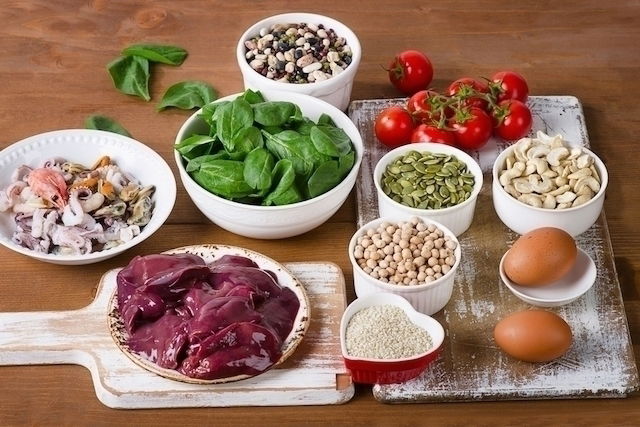A diet for dengue patients should ideally be made up of sources of protein, vitamin C, iron and other nutrients. Dengue patients are advised to eat fruits, vegetables and lean proteins, which can help prevent anemia and strengthen the immune system.
It is also recommended to avoid foods that can worsen symptoms and hinder recovery from dengue fever, such as fried foods, fast food, and processed meats, as well as foods that cause gas, such as beans, chickpeas, broccoli, cauliflower, cabbage, lentils and sweet potatoes.
Also recommended: 12 Foods That Cause Gas (Eggs, Bananas, Sweet Potato & More) tuasaude.com/en/foods-that-cause-flatulenceA body that is well-nourished is better-equipped to combat a dengue infection. Therefore, it is important to eat frequently, rest and drink at least 3L (about 12 cups) of fluid a day.

What to eat
When treating dengue, you should eat foods like:
- Fruits, such as apples, green bananas, pears, guavas, cherries, pineapples and lemons, all without the peel, seeds and pulp, when possible to be easier digested
- Low-fiber grains, such as white rice, white bread and white pasta
- Lean proteins, such as chicken, eggs, turkey, tofu, fish and lean cuts of beef, such as muscle, rump and flank steak
- Vegetables, preferably peeled and cooked, such as zucchini, tomatoes, chayote, carrots, pumpkin, beets and eggplant
- Tubers, such as cassava, potatoes, yams, and taro
- Low-fat dairy products, such as skim milk, white cheeses and skim yogurt
- Plant-based milks, such as soy, rice, almond and oat milk
- Beverages, such as water, coconut water and natural fruit juices.
These foods are rich in protein, vitamin C and iron, which are nutrients that are necessary to increase platelet levels, as they tend to drop with dengue infections. These foods are also low in fiber, which can help make digestion easier and treat nausea and diarrhea.
In addition, some teas, like chamomile and peppermint tea, may also be beneficial in managing dengue-related symptoms, like nausea, headache and body aches.
Also recommended: Common Dengue Symptoms: Classic & Hemorrhagic tuasaude.com/en/dengue-symptomsSome studies [1] [2] [3] show that supplementing with vitamin D may also help to strengthen the immune system to combat a dengue infection. Vitamin D contains an immunomodulador effect, as does vitamin E (which has antioxidant action that protects immune system cells).
What to avoid eating
Foods to avoid during dengue treatment include:
- High-fat foods, such as fried foods, nuggets, pizza, hamburgers and fast food meals
- High-fat dairy products, such as whole milk, yellow cheeses, butter and cream
- Laxative fruits, such as oranges, papaya, avocado, kiwi, figs and ripe bananas
- Seeds, such as walnuts, chestnuts, peanuts and hazelnuts
- Whole grains, such as brown rice, whole wheat pasta, whole wheat bread and oats
- Leafy vegetables, such as lettuce, arugula, kale, spinach, chard, Swiss chard and watercress
- Foods that cause gas, such as beans, radishes, chickpeas, broccoli, cauliflower, cabbage, lentils, sweet potatoes and Brussels sprouts
- Fatty cuts of meat, such as bacon, lamb, and pork,
- Processed foods, such as ketchup, mayonnaise, soda, ice cream, packaged biscuits, ready-made sauces and instant noodles
- Some seasonings, such as pepper, curry, garlic, cinnamon, wasabi, chili and onion
- Processed meats, such as sausage, ham, salami, pork sausage and mortadella;
- High-sugar foods, such as table sugar, jelly, chocolate, cake, processed juices, dried fruits and fruits in syrup;
- Carbonated drinks, such as sparkling wine, soft drinks and sparkling water;
- Caffeinated drinks, such as coffee, green tea, mate and black tea;
- Alcohol, like wine, beer and liquor
These foods should be avoided because they can make digestion more difficult, and cause excess gas, increase dehydration or worsen diarrhea.
3-day dengue diet plan
Here is an example of a dengue meal plan that promotes a speedy recovery:
The types and quantities of foods outlined in this meal plan can vary depending on the patient's age and general health status. Therefore, you are advised to consult a registered dietitian for a thorough assessment and nutrition plan.






























